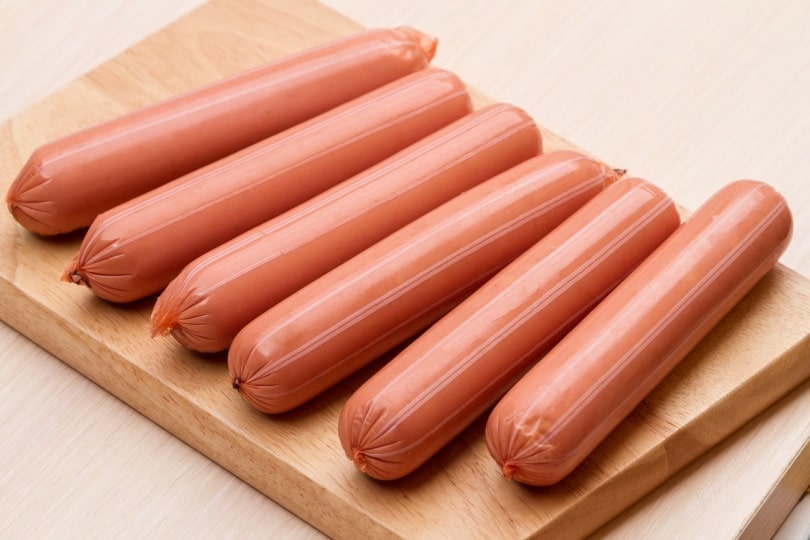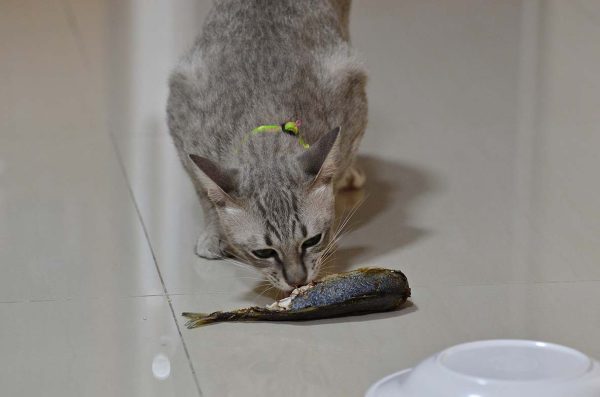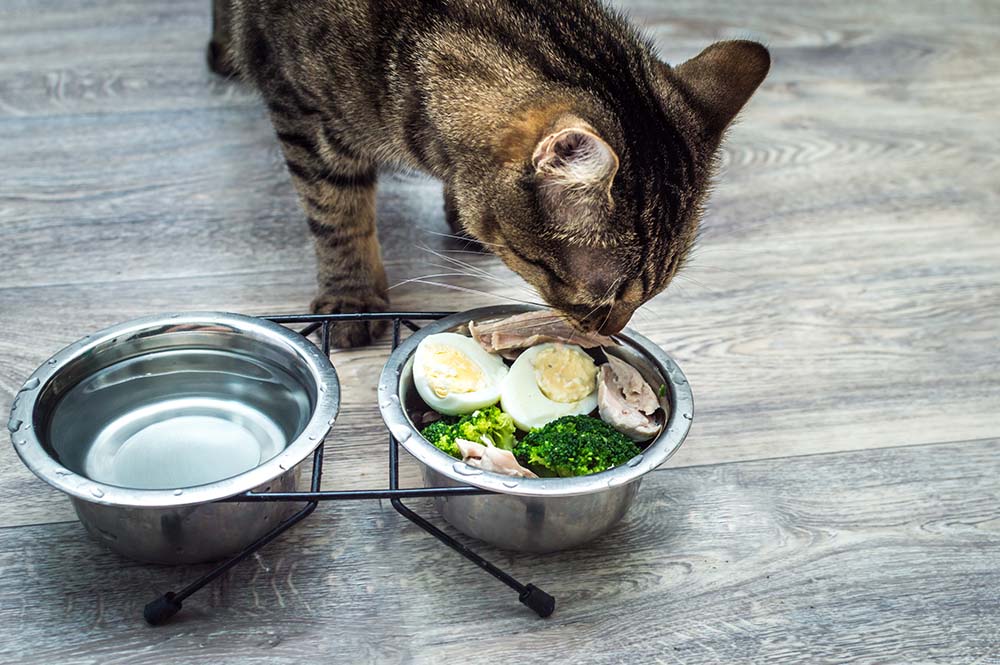Cats are known for their love of meat. They have a knack for appearing out of nowhere at the mere scent of chicken, turkey, beef, or salmon. While cats are natural predators, their curiosity can lead them to be attracted to the wrong types of foods, like Vienna sausages. However, it’s important to note that Vienna sausages are not a suitable food for cats. They are high in fat, preservatives, and lack the necessary nutritional value that cats require.
What Makes Up a Vienna Sausage?
Vienna sausages are made up of different ingredients, including ground pork, beef, or chicken. These ingredients are then mixed into a paste and stuffed into a thin edible casing. To enhance the flavor, various spices like salt, paprika, coriander, garlic powder, onion powder, nutmeg, and pepper may be added. However, it’s crucial to remember that garlic and onion powder are toxic to cats.
Can Vienna Sausages Have Negative Effects on My Cat?
If your cat has had a small bite of a Vienna sausage, there is no immediate cause for concern. However, frequent consumption or making it a regular part of their diet can be dangerous. Vienna sausages contain ingredients that can be harmful to cats, such as garlic and onion powder. These ingredients can pose life-threatening risks when consumed in high amounts. Additionally, the high salt content and excessive fat in Vienna sausages can cause discomfort, diarrhea, stomach issues, vomiting, and loss of appetite for cats.
It’s important to note that frequent consumption of Vienna sausages can lead to unhealthy weight gain in cats. Obesity in cats can result in various health issues such as diabetes, urinary problems, liver disease, and skin and respiratory issues. Keeping your cat within a healthy weight range is crucial for their overall well-being and longevity.
Are There Any Benefits?
Vienna sausages offer no real benefits to cats. There are plenty of better options and meats available that provide more nutritional value without the associated negatives. While Vienna sausages do contain protein, which is necessary for a cat’s diet, there are safer and healthier alternatives. Opting for unprocessed meats and fish is highly recommended when choosing treats for your cat.
What Foods Can My Cat Eat?
If you’re looking for healthier options to share with your cat, there are plenty of choices available. However, it’s important to remember that treats should only make up 10% of a cat’s daily calorie intake.
Meat and Fish
Cats require meat in their diet for energy, strong muscles, good vision, and a healthy heart. Cooked chicken, beef, turkey, and fish are all suitable options. The omega-3 fatty acids found in fish also contribute to good heart function, strong joints, and kidney health. Ensure that any meat or fish you offer your cat has been properly cooked to avoid any risk of food poisoning.
Eggs
Eggs are not only enjoyable for cats, but they also provide essential protein and amino acids. While eggs can be eaten raw, it is recommended to give them to your cat cooked to reduce the risk of Salmonella.
Foods to Avoid Giving Your Cat
There are several foods commonly found in households that may seem harmless but can have negative effects on your cat’s health. It’s important to be aware of these foods and keep them out of your cat’s reach to prevent any accidental consumption.
Frequently Asked Questions
Q: Can cats eat Vienna sausages?
A: Vienna sausages are not recommended for cats due to their high fat, salt, and preservative content. Cats are obligate carnivores and require a diet rich in unprocessed meats and fish for their overall health and well-being.
Q: Are there any benefits of feeding Vienna sausages to cats?
A: Vienna sausages offer no real benefits to cats. There are better alternatives available that provide more nutritional value without the associated negatives. It is advisable to choose unprocessed meats and fish as treats for your cat instead.
Q: What other foods can cats eat?
A: Cats can safely consume cooked meats like chicken, beef, turkey, and fish. Eggs are also a good source of protein for cats. However, it’s important to ensure that any food given to cats is properly cooked and does not contain ingredients that are toxic to them.
Conclusion
While Vienna sausages may contain protein, they offer little benefit to cats and can be harmful due to their high-fat content and seasonings. Regular consumption of Vienna sausages can lead to garlic or onion poisoning and digestive issues in cats. It is best to treat your cat with cooked unprocessed meats, fish, and eggs. Store toxic household foods securely to prevent your cat from accessing them, and never leave them unsupervised when cooking or snacking.
Featured Image Credit: Namphon2U-Shutterstock


